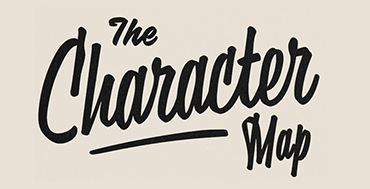Vague Characters




Barking Up the Wrong Tree It was originally published by Mind Hacks
Read this if you are kind, strong willed, but can be self-critical:
I’ve just found a classic study online where psychologist Bertram Forer gave a personality test to his students and then asked each person to rate how the accuracy of their ‘individual personality profile’. In reality, all the ‘individual profiles’ were identical but all the students tended to rate the descriptions as highly accurate.
In fact, on a scale of 1-5, students rated the accuracy of their profile, on average, as 4.2. This is the profile Forer used:
You have a great need for other people to like and admire you. You have a tendency to be critical of yourself. You have a great deal of unused capacity which you have not turned to your advantage. While you have some personality weaknesses, you are generally able to compensate for them. Your sexual adjustment has presented problems for you. Disciplined and self-controlled outside, you tend to be worrisome and insecure inside. At times you have serious doubts as to whether you have made the right decision or done the right thing. You prefer a certain amount of change and variety and become dissatisfied when hemmed in by restrictions and limitations. You pride yourself as an independent thinker and do not accept others’ statements without satisfactory proof. You have found it unwise to be too frank in revealing yourself to others. At times you are extroverted, affable, sociable, while at other times you are introverted, wary, reserved. Some of your aspirations tend to be pretty unrealistic. Security is one of your major goals in life.
The tendency to see ourselves in vague or general statements has since been called the Forer effect or, alternatively, the Barnum effect, after the famous catchphrase attributed to the travelling circus impresario P.T. Barnum: “There’s a sucker born every minute!”
It has been cited as the basis for palm reading, fortune telling and the like, and in the original article, Forer notes that he was inspired to conduct the study because he was “accosted by a night-club graphologist who wished to ‘read’ his handwriting”.
Forer asked the graphologist what evidence he had for the accuracy of his readings and he replied that his clients usually confirmed that he was correct.
Forer felt this was rather poor evidence but decided on an interesting tack: rather than attempt to validate the test, he decided to study the psychology of agreeing with vague personality profiles.
What does this have to do with screenwriting? Vague character descriptions like the one above fit almost anyone. There’s nothing clearly distinctive or sharply individual in such a collection of general (often contradictory) traits. There’s nothing memorable, unique or specifically authentic in such generalities– all the things that make a fictional character leap off the page.
That’s why I believe the Nine Character Types are so useful. Each of the Nine Character Types views the world very specifically and acts accordingly. A Power of Truth character who fundamentally believes 1) that the world is an inherently dangerous or deceptive place and 2) that life is a minefield laced with hidden pitfalls and secret agendas acts and reacts very differently than a Power of Excitement character who fundamentally believes 1) that the world is filled with unlimited opportunity and 2) that life is an ongoing adventure and potentially delightful surprises await around every corner.
Each of these two kinds of characters will have vastly different approaches to any challenge, opportunity or threat a story offers. Each will have very different attitudes toward friendship or love. They each have very different values and emotional journeys. Do you know exactly how your character views the world? Does each of his or her actions and reactions reflect that world view? Click on the Nine Character Types tab on the black menu bar above to review all nine types.




Create a visual map for a character’s emotional journey. Pull stories from character rather from rote story structure beats. Some of the largest international media companies, use this in story and character development.


A clear concise guide for writers and producers to have by their side as they embark on a project. It gives a really vital reminder of what is key for story success.

No comment yet, add your voice below!